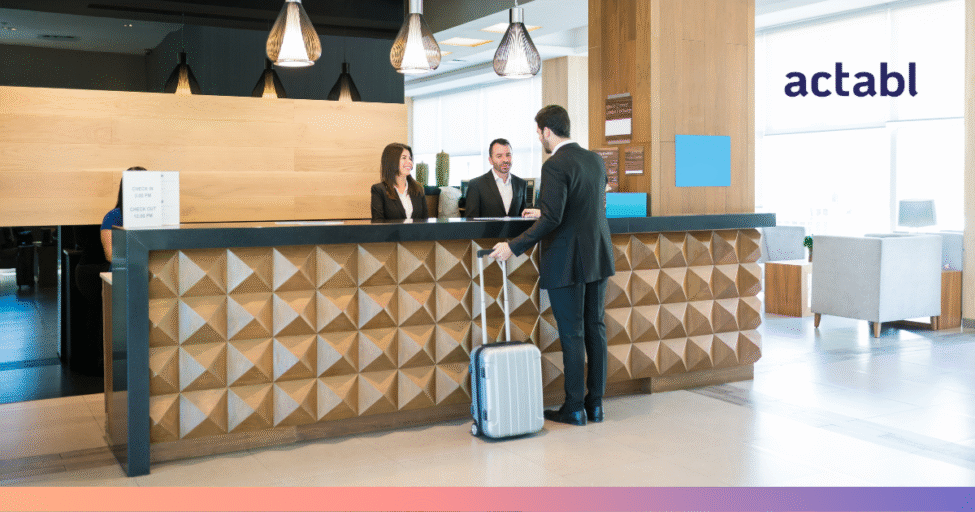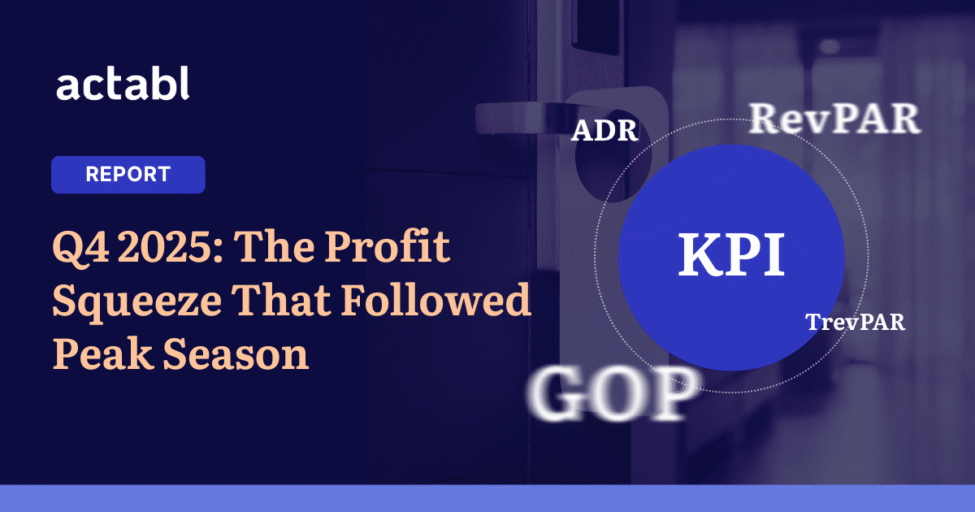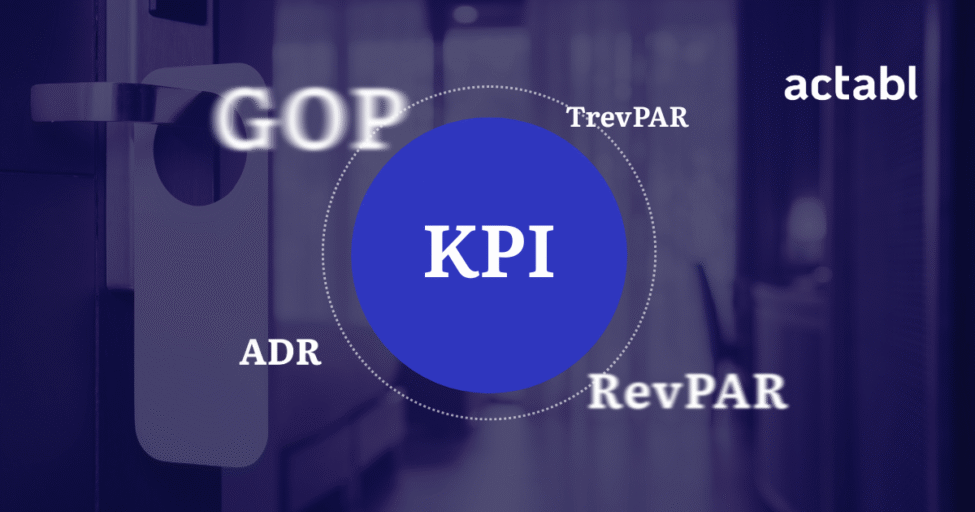
The Future of Hotel Labor Management: A Smarter, People-First Approach to Profitability
Rising costs, compressed margins, and labor shortages are currently colliding to create one of the most urgent challenges for hotel operators today. Labor—often the largest controllable expense—is naturally in the spotlight. But behind the spreadsheets and scheduling software is a deeper reality: labor isn’t just something to manage—it’s the heart of hospitality and the foundation of every guest experience.
Every decision made about staffing—who’s hired, who’s trained, who’s retained—ripples outward, shaping the heartbeat of a hotel. The opportunity before hoteliers now isn’t just to manage, it’s to recalibrate: to rethink how they invest in people, optimize operations, and build resilient teams.
While demand fluctuations and elevated guest expectations are key drivers in hospitality, labor has emerged as a strategic advantage. When managed well, labor can drive profitability, elevate the guest experience, and empower hotel teams with clarity and purpose.
This article explores:
- Why labor is the biggest controllable opportunity in hotels today
- The business and human costs of unoptimized labor
- How technology can create smarter, more humane labor strategies
- What a future-ready labor approach looks like in 2025 and beyond
- Real stories of transformation from hoteliers rethinking their labor models
At Actabl, our mission is clear: Empower the people who power hospitality. This article reflects that commitment, offering insights into how a people-first approach to labor management is not just a matter of ethics, but a smart, sustainable path to success both today and over the long term.
Why Hotel Labor Management is the #1 Opportunity for Operators
According to CBRE’s Trends in the Hotel Industry report, labor accounts for roughly 40-50% of operating expenses in full-service hotels and nearly 60% in some luxury properties. With inflation pushing wages upward and competition for talent remaining fierce, labor isn’t just a big cost—it’s a volatile one.
"Labor costs are a constant concern for hotel operators, and finding ways to manage them effectively without compromising guest service is a critical balancing act," said Robert Mandelbaum, Director of Research Information Services at CBRE. This balancing act requires a shift in perspective, moving away from viewing labor solely as a cost to be minimized and towards recognizing its potential as a strategic asset to be optimized.
“Labor costs have increased as a share of total expenses,” Mandelbaum added. “Starting in 2023 and certainly into 2024 and 2025, expense growth has been trending greater than revenue growth. The flow-through (profit margins) of hotels have, in general, been declining since then.”
It’s safe to say that margins are under more pressure than ever. Operating costs have surged post-pandemic, while rate growth has started to level off in many markets. This leaves operators with limited levers to pull. Energy and fixed costs may be non-negotiable, but labor—how much, when, and where it’s deployed—offers room for both efficiency and impact.
“Poor labor management has a cascading negative impact on hospitality businesses for staff, operators, and owners. Inadequate forecasting and scheduling typically leads to the service failure we all experience as guests," says Tyler Ward, vice president of strategic initiatives at hospitality consultancy Galleon Advisors. “A revolving door of talent and declining net promoter scores always leads to a loss of market share and pricing power that directly impacts the owner's returns and asset value.”
Optimized labor in hospitality refers to aligning staffing levels, roles, and schedules with actual business needs and guest demand to maximize efficiency, control costs, and maintain or improve service quality. When labor is not optimized, the consequences are immediate and costly. Overtime pay eats into profitability. Understaffing leads to guest complaints and bad reviews. Overstaffing erodes margins. Unclear scheduling and constant changes cause employee frustration and burnout.
“Labor represents the largest single line item on the hotel P&L—and also the one with the most variability,” Mandelbaum said. “That makes it the most powerful area of opportunity when it comes to improving profitability.”
The Human Side of Hotel Labor Management
Behind every shift is a person with a life outside of work. Yet for many hotel teams, labor management still feels chaotic and unfair. Schedules change last minute. Communication is spotty. Expectations are unclear. It’s no surprise that hospitality suffers from one of the highest turnover rates in any industry.
The human toll of mismanaged labor extends beyond the employee—it hits the guest experience directly. A room that isn’t cleaned on time. A front desk agent too frazzled to make eye contact. A kitchen running behind because the breakfast shift was short a cook. These aren’t just operational misses—they’re moments that define the guest’s impression.
But labor optimization isn’t about squeezing more out of people. It’s about giving teams the tools and structure they need to succeed. Fair scheduling. Clear benchmarks. Flexibility when life happens. In short, dignity.
Hotel Labor: The Heart of Hospitality
While labor is a major cost center, it’s also the heart of hospitality. How hotels manage labor isn't just a financial decision—it reflects their values, shapes their culture, and influences the type of experience they deliver to both guests and employees.
Labor decisions affect people, not just profits. They are also:
A Reflection of Guest Experience—Hotels are a people-first business; the quality of guest experience is directly tied to staff morale, training, and engagement. Reducing labor costs without regard for service quality can lead to burnout, high turnover, and diminished guest satisfaction—which ultimately hurts the business.
Empowering for Staff —A smart hotel staffing strategy can create more meaningful roles, better training, and clearer career paths. Cross-training staff or adjusting schedules with flexibility in mind helps employees feel valued and supported—leading to stronger performance.
A Balance of Efficiency and Humanity— Technology and data can streamline scheduling and reduce administrative burdens so team members can focus on high-touch, personalized service, enhancing both employee and guest experiences.
A Social Responsibility Issue—Hotels are often major employers in their communities. Labor choices affect local economies, families, and livelihoods. Investing in staff builds stronger workplace cultures, improves retention, and signals responsible business practices—turning labor from a pure cost into a meaningful differentiator.
How Technology Enables Smarter, More Compassionate Labor Management
Technology’s promise in hospitality isn’t about replacing people—it’s about empowering them. The right tools make it possible to manage labor with both precision and empathy.
Here’s how:
Demand-based scheduling: Using historical data, forecasts, and occupancy trends, operators can align staffing to actual needs, not gut instinct.
Shift swapping and mobile scheduling: Give employees flexibility and control over their schedules with self-service tools that reduce manager workload.
Labor benchmarking: Compare staffing levels across properties, brands, or markets to ensure each team is right-sized and operating efficiently.
Hotel Effectiveness from Actabl is purpose-built for this challenge. It’s already helping thousands of hotels reduce unnecessary labor costs while improving team engagement and service consistency. By leveraging data analytics, predictive modeling, and intuitive interfaces, Hotel Effectiveness enables hotels to make informed decisions, ultimately creating a more efficient and employee-centric work environment. (Learn more here.)
What a Smart Labor Strategy Looks Like in 2025 (and Beyond)
The future of hotel labor leadership is not about working harder—it’s about working smarter. A forward-thinking labor strategy includes:
Data-informed decisions: Use real-time metrics, not intuition, to make staffing choices. With accurate, timely data, managers can optimize schedules, prevent overages, and avoid last-minute staffing gaps.
Established labor standards: Set productivity benchmarks by department, brand, or market so teams have clear goals. These benchmarks ensure consistency, accountability, and alignment across the organization.
Flexible scheduling tied to demand: Match labor to actual guest needs and empower teams to adapt. Flexibility leads to better work-life balance for employees and more responsive service for guests.
Performance dashboards: Give managers visibility into labor efficiency and outcomes, helping them coach rather than just correct. Real-time insights drive proactive management and continuous improvement.
When these elements come together, the results are powerful: Teams feel supported. Guests feel genuinely cared for. And owners see stronger returns. Smarter hotel staffing strategies lead to better retention, more consistent service delivery, and greater agility in responding to market shifts. In short, they future-proof hotel operations.
Stories of Transformation: How Hoteliers Are Rethinking Labor
Drew Potter, a former hotel GM and now part of Actabl’s team, said that “everything changed” when his property implemented Hotel Effectiveness, the labor management software from Actabl. “It saved me hours every week. That’s not an exaggeration. It was hours I used to spend building and rebuilding schedules, trying to avoid going over budget, and scrambling to cover shifts.”
With Hotel Effectiveness, both he and his employees found much-needed clarity. “The shift after implementing Hotel Effectiveness wasn't just about saving my time,” he said. “It was about seeing my team thrive with consistent, fair schedules. It was about improved morale, less burnout, and ultimately, an elevated guest experience because our associates felt supported and could focus on what they do best: delivering hospitality.” (Read more of Drew’s story here.)
“Nothing beats time on the floor,” said Kevin Kelleher, also an Actabl team member. He should know—he’s also a former hotel GM, as well as a Director of Rooms, Director of Operations, Director of Housekeeping, front desk agent, and concierge—to name but a few roles he’s filled over the years.
"Using a system like Hotel Effectiveness, where you have the 5-minute daily labor check-in... you’re holding yourself accountable every single day on how you performed yesterday,” he says. He shared a recent client’s labor management win, noting that within 60 days of them using the system, they had a 45% reduction in overtime year over year. The next month, they had another 50% reduction year over year in overtime.
With Hotel Effectiveness at the helm, above-property leadership and the GMs have more understanding of what schedules are going to cost before they're posted, and can make necessary adjustments before schedules go live.
“If you schedule exactly what you need, your guests are going to be happy, and your employees are going to be happy because they're not overworked. They're working, maximizing their schedule to make money. It’s just a win-win for everybody.”
Utilizing his wealth of hotel experience, Kevin is uniquely equipped to share ideas and best practices with clients, talking through details that can make all the difference. “I can anticipate
how teams want information fed to them, what a day in the life of using our tool is like, and how we can set clients up for success.”
Conclusion: Labor as a Lever for Culture, Experience, and Profit
Labor management isn’t just an operational concern—it’s a defining element of a hotel’s identity and guest promise. When hotel leaders reimagine labor as a catalyst for growth, they unlock new levels of team engagement, service excellence, and business performance. Modern labor management is driven by technology and is grounded in empathy.
At Actabl, we believe that when hotel teams thrive, the entire business thrives. Our mission is to empower the people who power hospitality through smart technology, real data, and a deep respect for the human side of hotel operations.
Learn more about how Actabl’s labor management software, Hotel Effectiveness, is helping hoteliers rethink labor for good.





